January 23rd, 2017
by Yoshihiro Hosokawa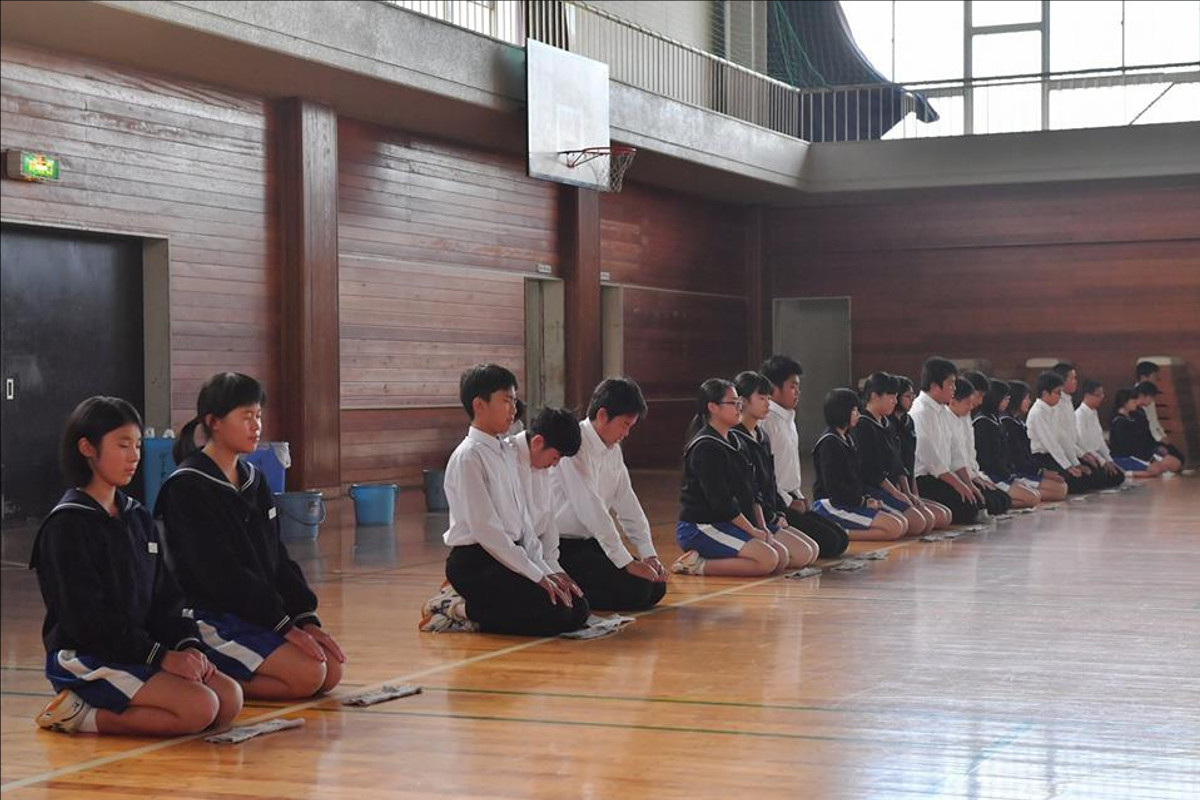

In recent years, the Mindfulness-Based Stress Reduction (MBSR) program has gained immense popularity in Europe and America, finding applications across diverse fields including healthcare, education, and business. It involves consciously acknowledging what is present in the moment and experiencing it through the body's natural sensations. Focusing the mind, engaging in meditation, and calmly examining oneself—these practices are rooted in Zen principles.

Eiheiji Temple is one of the head temples of the Soto Zen school, founded by Zen Master Dōgen in 1244. Located 15 kilometers from central Fukui, it features 600-year-old cedar trees and seventy structures of various sizes. Now enveloped in tranquility and crisp air, 150 monks known as itinerant monks practice here.
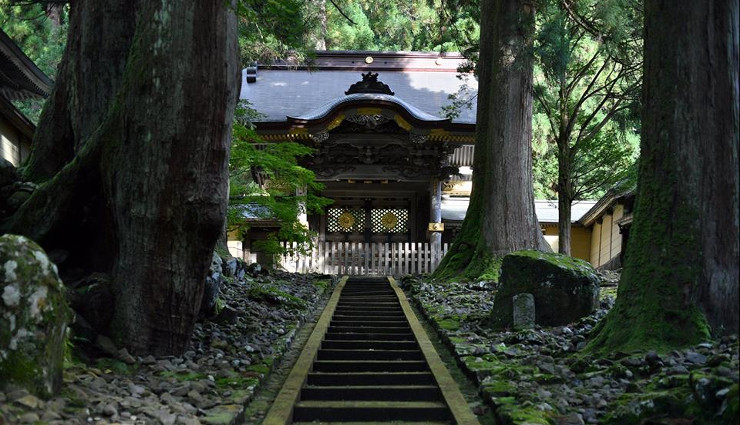
The itinerant monk meditates for two hours daily. Simply sitting in meditation without distracting thoughts follows the teaching of Zen Master Dōgen: “Just sit.”
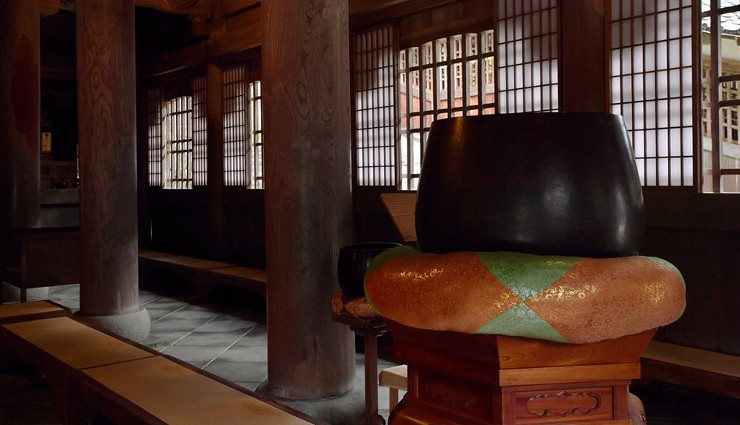
Including seated meditation, all aspects of daily life are practice. From rising in the morning, washing one's face, eating meals, cleaning, bathing, to retiring at night, everything must adhere to the strict teachings of Zen Master Dōgen.
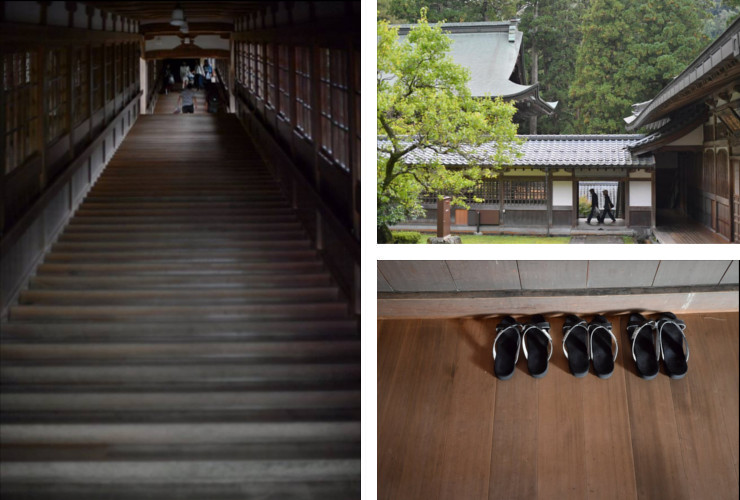
Eiheiji Junior High School near Eiheiji Temple has been implementing a unique educational program based on the “Heart of Courtesy” from Zen Buddhism for over 30 years to cultivate students' self-discipline. Through school life, this program teaches self-restraint and the ability to conform to social norms and etiquette.
For instance, students bow respectfully toward the school building when arriving. Additionally, they recite silently before classes begin.
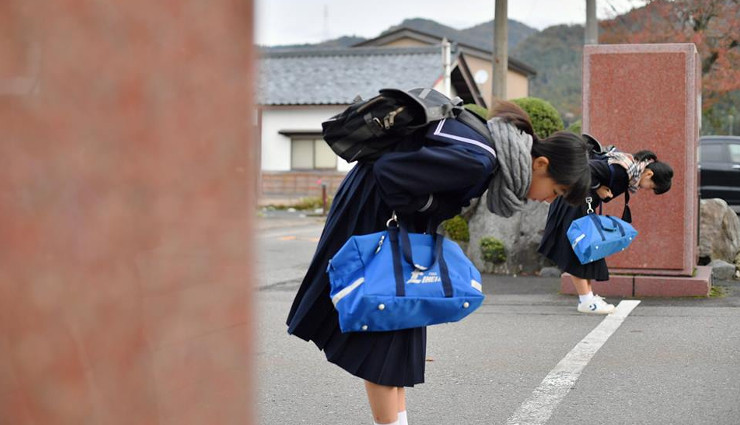
Silent cleaning is also part of this education. Within 15 minutes, students wipe down classrooms, hallways, gymnasiums, and restrooms without uttering a word, facing themselves sincerely and tempering their inner selves. Through silent cleaning, concentration and patience are naturally cultivated. Schools both within and outside Fukui Prefecture have also begun implementing silent cleaning from an educational perspective.

Fukui's elementary and junior high school students have achieved the highest levels in both academic ability and physical fitness. Research by educators outside Fukui Prefecture suggests that silent cleaning is one factor contributing to this academic excellence.
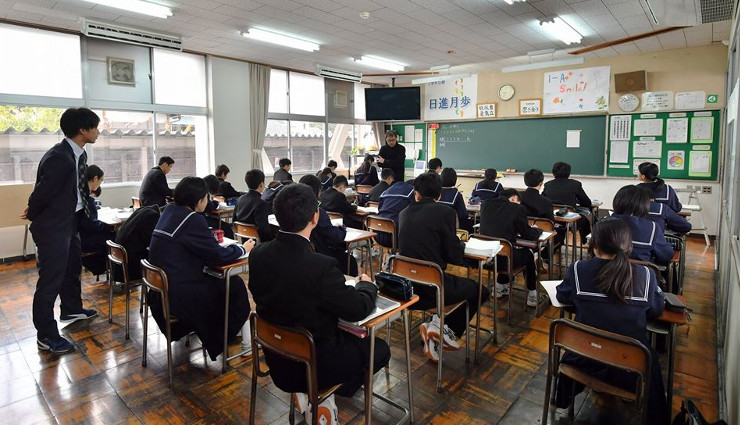
Zen is not merely one of the Buddhist schools; it has profoundly influenced Japanese culture as a whole. For instance, disciplines like judo, kendo, the tea ceremony, and calligraphy all embody the concept of “the Way”—the idea of exerting one's utmost effort to achieve complete concentration—which bears a strong resemblance to Zen.

Zen also influenced Apple co-founder Steve Jobs. It is said that Jobs encountered Zen Buddhism in his youth, which greatly stimulated his imagination and creativity. Reportedly, due to his deep commitment to Zen, he even seriously considered becoming a monk at Eiheiji Temple.
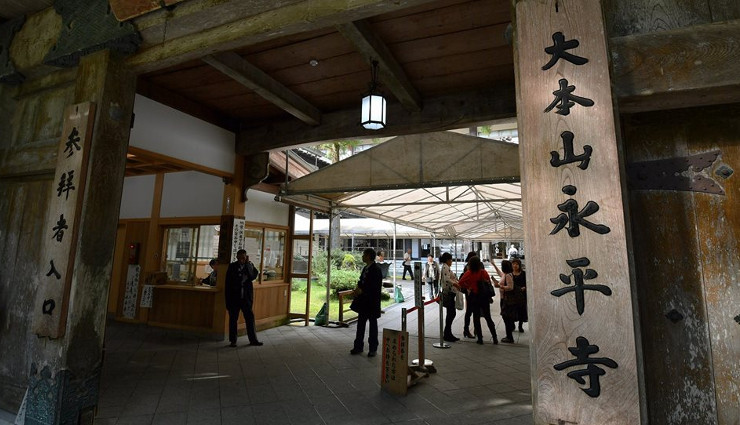
Zen retreats offer opportunities to confront oneself and guide the way to new horizons. Eiheiji Temple provides Zen practice experiences ranging from one night to several nights. Stay at Eiheiji Temple to face yourself and discover what new insights await.
【抄訳】
ストレス軽減のため、マインドフルネスは、近年、欧米で人気が高まり、医療や教育、ビジネスなど、様々な分野に応用されています。これは、今この瞬間に目を向け、あるがままに受け入れる意識のことで、精神を集中し、瞑想して、己をじっくり見つめ直す「禅」に基づいています。
永平寺は、曹洞宗の大本山のひとつとして、曹洞宗の創始者である道元禅師が1244年に創立したものです。福井の中心部から15キロ東に位置し、樹齢600年の杉の木や大小合わせて70もの建物が並んでいます。現在、静寂と澄んだ空気に包まれ、雲水と呼ばれる150名の僧が修行をしています。
雲水は毎日2時間、座禅をします。「ただ座り、無心で座禅をする」という道元禅師の只管打坐の教えによるものです。座禅を含め、日常生活のすべてが修行です。早朝起床し、顔を洗い、食事、掃除、入浴をして、夜、眠るまで、道元禅師の厳しい教えに従います。
永平寺の近くにある永平寺中学校には、生徒たちの自律心を育むべく、禅宗の一部にならった「礼の心」という独自の教育が30年以上あります。この教育では、学校生活を通じて、自らを律し、社会の規範や礼儀にかなった行いをする力を身につけます。たとえば、生徒たちは、登校時に、校舎に向かって丁寧にお辞儀をします。また、授業が始まる前には、黙想をします。
無言清掃もこの教育の一部です。生徒たちは15分間、一言も話すことなく、教室や廊下、体育館、トイレを雑巾がけし、自分を向き合って、心を磨きます。無言清掃を通じて、自然と、集中力や忍耐力が養われるのです。福井内外の学校でも教育的な目的から無言清掃を取り入れるようになっています。
福井の小中学生は、学力、体力ともにトップクラスをとってきました。福井県外の教員らの研究では、無言清掃が、学力の高さをもたらす要因のひとつではないかとみています。
禅は仏教の宗派のひとつにとどまらず、日本文化全体にも大きな影響を与えています。例えば、柔道や剣道、茶道、書道は、“全力を込めてひとつのことを極める”という“道”の考え方によるものですが、これは、禅ともよく似ています。
禅はアップルの共同創業者であるスティーブ・ジョブズにも影響を与えました。ジョブズは若い頃、禅と出会い、発想力や創造力が大いに刺激されたといわれています。禅に傾倒するあまり、一時期は、真剣に永平寺への出家を考えていたそうです。
禅は、自分と向き合う機会を与え、新しい世界にすら導いてくれます。永平寺には、1泊から数泊滞在する禅の修行体験プログラムがあります。永平寺に滞在し、自分と向き合い、新しい何かを見つけてみませんか。